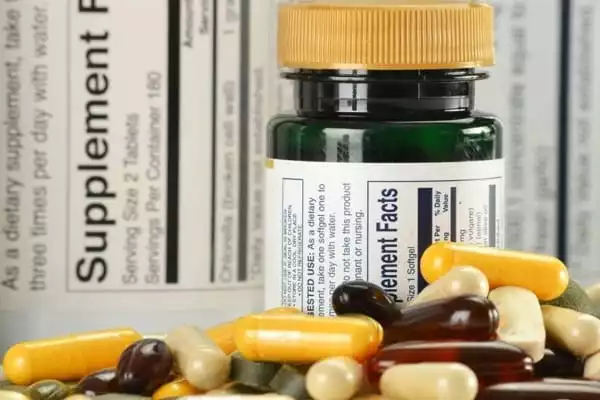Coronavirus-2019 (COVID-19), caused by SARS-associated coronavirus-2 (SARS-CoV-2) has claimed the lives of millions of people worldwide and put a pressure on the medical community. Individuals who are pre-symptomatic or asymptomatic for SARS-CoV-2 vastly outnumber those who are symptomatic or have severe disease.
A meta-analysis of 26 trials including over 5,600 COVID-19 patients indicated that taking immune-boosting micronutrients such as vitamin C, vitamin D, and zinc does not reduce a patient’s risk of dying from COVID-19.
According to a new study of COVID-19 hospitalization data conducted by researchers at The University of Toledo, using immune-boosting supplements such as vitamin C, vitamin D, and zinc does not reduce your risk of dying from COVID-19.
During the early stages of the pandemic, healthcare providers experimented with a range of micronutrients as potential treatments for the new illness. Supplements have recently been suggested by some as a replacement to safe and established immunizations. Despite the continued interest in these tactics, Dr. Azizullah Beran claims there is little proof that they function.
It’s critical for individuals to recognize that using a lot of these supplements does not translate into improved results. Another essential message is that the vaccine is the solution to this disease. Micronutrient supplements will not compensate for a lack of vaccination or make the vaccine unnecessary.
Dr. Ragheb Assaly
“A lot of people have this misunderstanding that if you load up on zinc, vitamin D, or vitamin C, it can benefit the clinical result of COVID-19,” said Beran, an internal medicine resident at The University of Toledo College of Medicine and Life Sciences. “That hasn’t been proven.”
Beran is the lead author of a new research that adds to the growing medical consensus that micronutrient supplements are ineffective for COVID-19 treatment. He and his colleagues examined 26 peer-reviewed studies from throughout the world, which comprised almost 5,600 hospitalized COVID-19 patients. Their study found no difference in mortality between individuals who received vitamin D, vitamin C, or zinc supplements and those who did not receive any of the three supplements.
Their study did discover that vitamin D supplementation may be associated with decreased rates of intubation and shorter hospital stays, but the researchers stress more research is needed to corroborate that conclusion.

Vitamin C and zinc were not linked to shorter hospital stays or a lower risk of being placed on a ventilator. While the majority of the patients in the trial were already unwell and hospitalized with COVID-19 when they were given the supplements, researchers did look at a smaller subset of people who had been taking vitamin D prior to developing the virus. They also discovered no statistically significant change in the mortality rate of that population. The study was published in Clinical Nutrition ESPEN.
“It’s critical for individuals to recognize that using a lot of these supplements does not translate into improved results,” said Dr. Ragheb Assaly, senior author of the study and a UToledo professor of medicine. “Another essential message is that the vaccine is the solution to this disease. Micronutrient supplements will not compensate for a lack of vaccination or make the vaccine unnecessary.”
The researchers emphasize that the data should not be construed as implying vitamin and mineral supplements are undesirable or should be avoided, but rather that they are ineffective in avoiding COVID-19 mortality.
According to Beran and Assaly, some COVID-19 patients who are malnourished or otherwise weak in micronutrients may benefit from supplements, but this is because their bodies are already deficient in vital nutrients, not because vitamin D or vitamin C are beneficial against the virus.
“What we’re saying is, if you don’t require these supplements for medical reasons, don’t take them believing they’ll protect you from COVID-19,” Beran added. “They aren’t going to keep you from receiving it, and they aren’t going to keep you from dying.”
Alcohols in sanitizers have not been demonstrated to cause any health problems. Most lotions contain an emollient to relieve skin dryness, and little alcohol is absorbed into the skin. Alcohol causes allergic contact dermatitis and bleaching of hand hair, both of which are extremely rare side effects. In rare circumstances, accidental ingesting and intoxication have been reported.
Micronutrients, such as vitamins D and C, as well as zinc, are essential for a healthy immune system and play an important role in promoting health and nutritional well-being. There is presently no guideline on the use of micronutrient supplements as a COVID-19 therapy. WHO is coordinating efforts to develop and test COVID-19 treatments.





